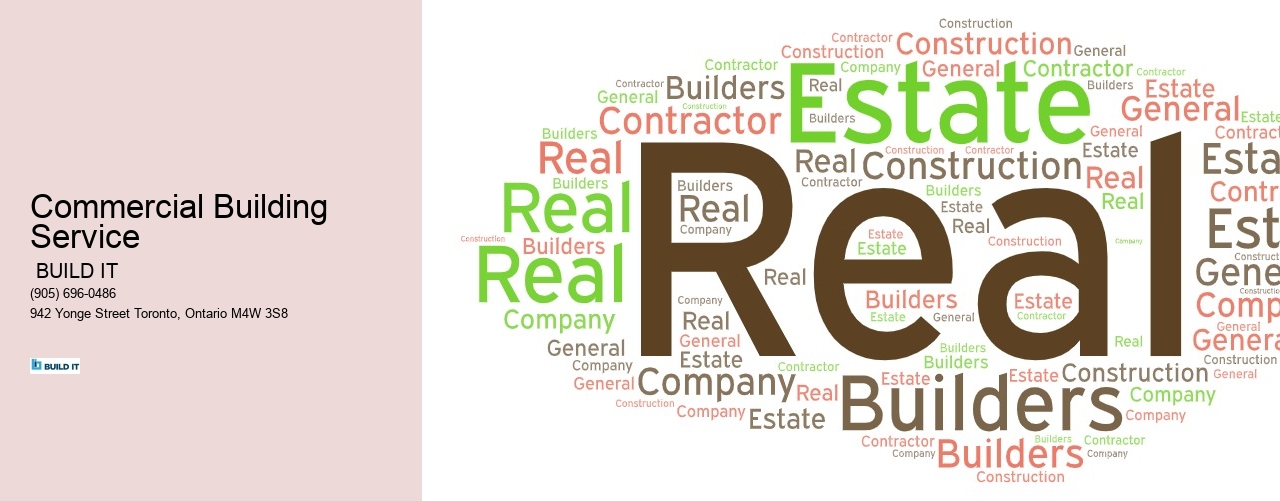

At BUILD IT Toronto, we design and build purpose-driven commercial and industrial spaces that help businesses flourish in one of Canada’s most fast-paced cities. Our expertise in quality construction, coupled with a collaborative approach, makes us the go-to partner for entrepreneurs and national brands alike. From retail and hospitality on Queen West to medical offices in North York and logistical facilities in Scarborough, our work can be seen across the city—and we’re just getting started.
We’re more than general contractors—we’re end-to-end builders. Our services span pre-construction planning, permit coordination, full design-build execution, and final delivery. Keeping the entire process under one roof lets us work more efficiently and communicate more clearly—ensuring your project stays on time and within budget.
With deep roots in Toronto, we understand the local challenges—from intricate zoning regulations to working in high-density environments. Our experienced teams have delivered successful builds across the GTA, including in Mississauga, Etobicoke, Vaughan, and the city core.
We bring this local knowledge to every sector we serve: restaurants, retail stores, healthcare clinics, office spaces, industrial builds, and franchise expansions. Every project is guided by strict safety standards and building codes, while also being thoughtfully designed for day-to-day use.
What truly sets us apart is how we treat our clients. We see each project as a partnership, listening first and tailoring our strategies to your needs. Real-time tools keep you informed, while our experienced team ensures quality and clarity throughout.
If you’re planning a build or renovation in Toronto, choose BUILD IT Toronto for a space that’s functional, stunning, and built for success. Let’s build something exceptional—together.

The process of transforming an office space begins with a detailed consultation between the commercial builder and the client. This initial meeting is crucial for understanding the client’s vision, needs, and budget constraints. During this phase, builders assess the existing office layout, discuss the desired changes, and consider how those alterations will serve the workforce's needs. Communication is key to ensure that all parties are on the same page regarding project scope, timelines, design preferences, and functional requirements.
Once the project's goals are established, commercial builders collaborate with architects and designers to draft renovation plans. These professionals take into account structural considerations, building codes, and aesthetic elements to create a comprehensive design that aligns with both practicality and client desires. Following design finalization, builders navigate regulatory frameworks to secure necessary permits. This step ensures that all renovations comply with local laws and safety standards before construction commences.
Choosing the right materials is vital for any office renovation as it affects both durability and aesthetics. Commercial builders work with suppliers to select quality materials within budget constraints that match the client’s visual intent while also considering environmental factors like lighting conditions or acoustics. They must balance cost-efficiency with performance characteristics to achieve an end result that is not only visually appealing but also functional for daily business operations.
Effective scheduling is essential in minimizing disruption during an office renovation. Commercial builders devise a project timeline that accommodates business hours to reduce downtime for employees. Project managers oversee every aspect of construction ensuring milestones are met while coordinating tasks among various tradespeople involved in electrical work, plumbing, carpentry, painting, etc. Regular updates keep clients informed about progress while adapting quickly to any unforeseen challenges or changes in scope ensures projects remain on track.
As renovation nears completion, commercial builders implement rigorous quality control measures throughout each stage of construction. Attention to detail ensures finishes meet high standards while functionality tests confirm systems operate as intended. Upon completion of construction works, clients are guided through a final walkthrough where any adjustments or corrections can be identified before sign-off occurs. The goal is always delivering an office space that enhances productivity through thoughtful design while achieving client satisfaction through exceptional craftsmanship.
| Commercial Construction & Expansion Services | |
|---|---|
| Commercial Construction Services | Full-service construction solutions for new builds, additions, and renovations. |
| Commercial Construction Management Companies | Professional management teams overseeing timeline and budget compliance. |
| Commercial Projects Contractor | Reliable contractors for office buildings, retail stores, and warehouses. |
| Construction Commercial Companies | Experienced firms focused on efficient, code-compliant structures. |
| Contractors Commercial | Qualified commercial contractors for multi-unit and large-scale jobs. |
Before diving into a commercial construction project, it is crucial for clients to grasp the various cost components that form their budget. This includes direct costs such as labor, materials, equipment, and subcontractor expenses. Indirect costs must also be considered; these can include administrative fees, legal services, insurance premiums, and safety compliance expenditures. Understanding these elements helps in creating a comprehensive financial plan that accommodates all possible expenses.
Formulating a realistic budget requires clients to not only consider immediate costs but also account for contingencies and potential overruns. A rule of thumb is to allocate an additional 5-10% of the total projected costs for unforeseen circumstances. This financial cushion ensures that the project can continue smoothly even when unexpected issues arise. Clients should work with experienced contractors who can provide accurate estimates and help set expectations based on industry standards and past projects.
Timelines are closely tied to budgeting as delays often translate into increased costs. It's imperative for clients to understand the project timeline and how it impacts their budget. Overseeing the scheduling of tasks and ensuring milestones are met on time can prevent cost escalations due to overtime charges or extended equipment rentals. Clear communication between clients and contractors regarding deadlines is essential in keeping the project within its financial confines.
Once a construction project kicks off, active budget management becomes key. Monitoring expenditures against the allocated budget should be an ongoing process throughout construction phases. Clients should hold regular meetings with their contractor to review financial reports, discuss cost-saving options if necessary, and make adjustments according to project progress or market changes in pricing of materials or labor rates. Active involvement helps prevent overspending and ensures that funds are used efficiently towards successful completion of the commercial construction endeavor.

Expect demolition (if needed), framing, MEP systems, finishes, inspections, and a certificate of occupancy.
They oversee architectural design, engineering, budgeting, permitting, and manage the build from concept to completion.
They use scheduling software, coordinate subcontractors, plan for delays, and manage milestones.
Commercial focuses on offices/retail, while industrial includes warehouses, factories, with different codes and needs.